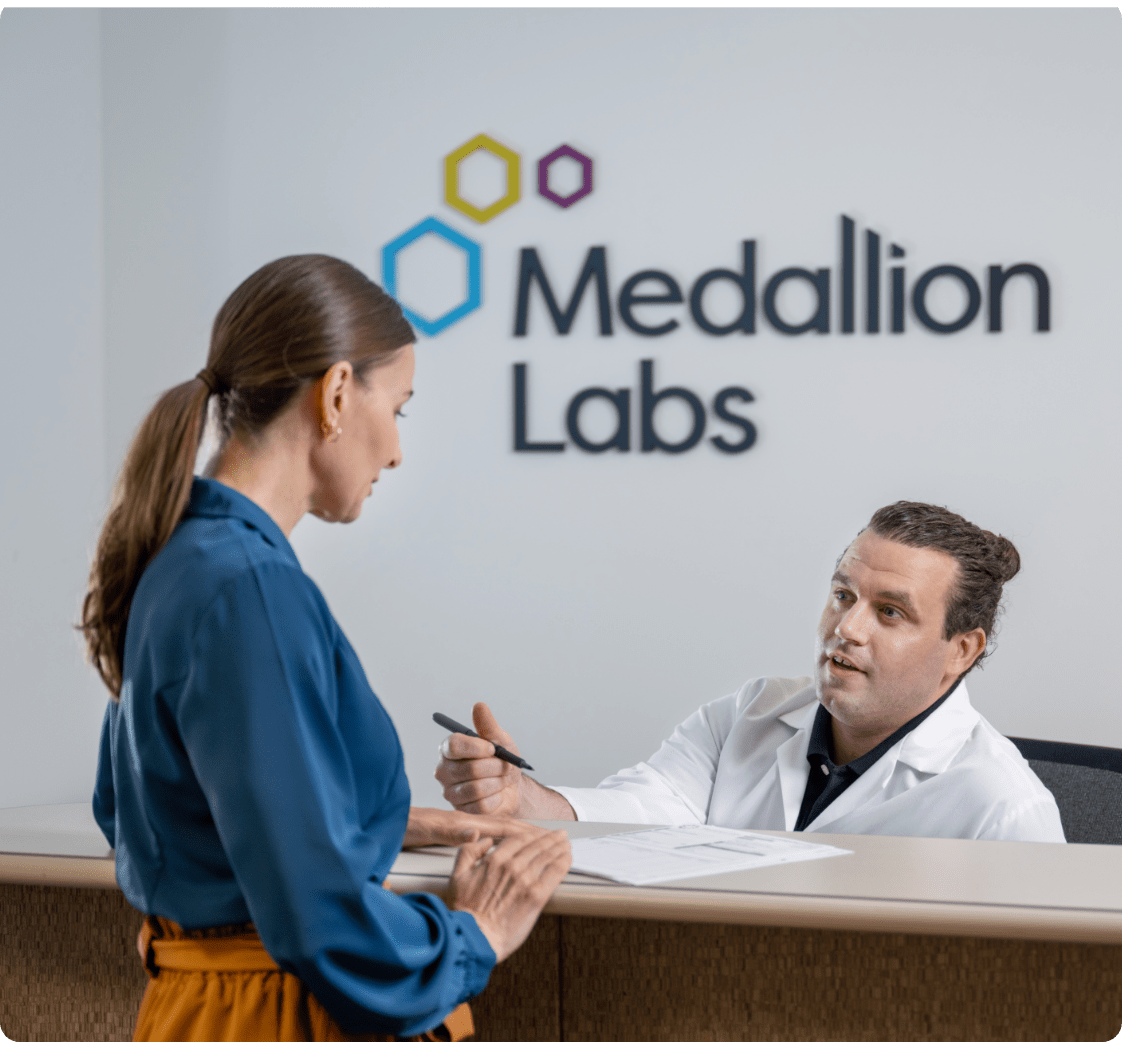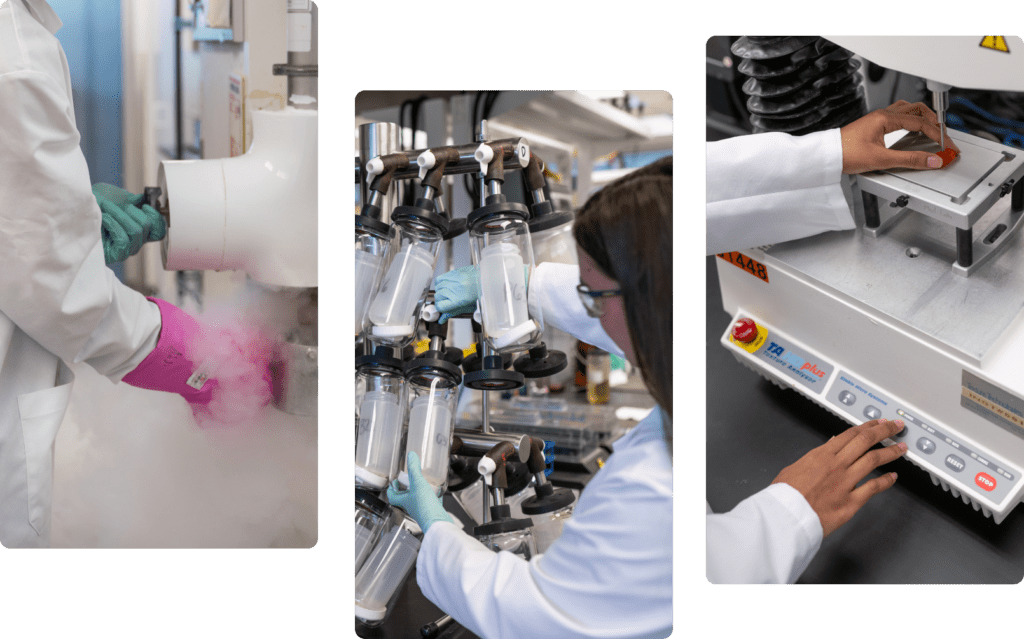Antioxidant Activity Test
- Price
$315 per analysis
- Turnaround time
7 – 9 Business Days
- Rush
Not Available


Technical data sheet
- Method description
The antioxidant activity of foods is determined using a method designed to give maximum extraction of the antioxidant capacity of the sample. The stable 2,2-diphenyl-1-picrylhydrazyl (DPPH) radical gives a strong absorption maximum at 517 nm and is purple in color. The color turns from purple to yellow when the odd electron of DPPH radical becomes paired with hydrogen from a free radical scavenging antioxidant forming the reduced DPPH-H. The resulting decolorization is stoichiometric with respect to the number of electrons captured. The reference standard, Trolox [(S)-(-)-6-hydroxy-2,5,7,8-tetramethylchroman-2-carboxylic acid], and the sample are extracted and reacted with the methanol-water DPPH solution for four hours at 35°C and the absorbance changes are measured at 517 nm. The quantity of sample necessary to react with one half of the DPPH is expressed in terms of the relative amount of Trolox reacted. Antioxidant activity of a sample is expressed in terms of micromole equivalents of Trolox (TE) per 100 grams of sample, i.e. Trolox units per 100 g or TE/100g.
- Acceptable matrices
Food and Food Ingredients
- Unacceptable matrices
Liquid samples with high concentration of antioxidants
- Limit of quantitation
400-400,000 micromoles of Trolox equivalents (TE) per 100 grams of sample
- Equipment
Spectrophotometer
- Method reference
AOAC 2012.04 - "Estimation of Antioxidant Activity in Foods and Beverages by Reaction with 2,2'-diphenyl-1-picrylhydrazyl (DPPH)"
- Reportable unit
TE/100g
- Sample size requirements
6 g
- Information required by submitter
Please supply estimates
- Additional information
Antioxidant activity of foods is measured by simultaneously extracting the food’s antioxidants and reacting them with the stable radical 2,2-diphenyl-1-picrylhydrazyl (DPPH). Since a separate extraction step is not used, the simultaneous extraction/reaction step facilitates the extraction process to completion and also allows measurements to be taken before degradation of the extracted material. In this method, DPPH is allowed to react with the whole sample and sufficient time allows reaction with weak antioxidants. Results are expressed as Trolox Equivalents by using the stable antioxidant Trolox as a calibrating agent. Other methods, such as ORAC, measure total antioxidant activity by first extracting the food’s antioxidants into 1 or more solvents before reaction with radicals. The DPPH and ORAC values will differ but trending within a food set is possible by both.
Common Antioxidant Activity Test Testing Questions
We make every effort to keep our methods and detection limits up to date according to the latest standards and qualifications. If you have any questions regarding the limit of detection/quantification or method references, please contact our Customer Service team at 1-800-245-5615.
Our standard turnaround time is 10 business days for most assays. There are some assays that require a longer turnaround time. We also offer a RUSH service that is half the time of the standard turnaround time of the assay at double the cost of the assay. A few assays that we provide cannot be rushed due to the nature of the test. Please check the specific assay you are interested in regarding the ability to RUSH the turnaround time.
One of the key differences between our Antioxidant Activity test and the ORAC test is the extraction procedure. Our Antioxidant Activity test simultaneously extracts the food's antioxidants while reacting with the radical, DPPH. The ORAC test has separate steps for the extraction and reaction. The one step process used in our test often results in slightly higher recovery of antioxidants, especially for short lived antioxidants. The results will be different between these two tests.
Our food testing experts are here to help.
"*" indicates required fields

Helpful content related to Antioxidant Activity Test
Submit your order online and ship your samples today. If you have questions, we are always here to help.
A food testing program designed with mid-market and enterprise food and ingredient manufacturers in mind.
